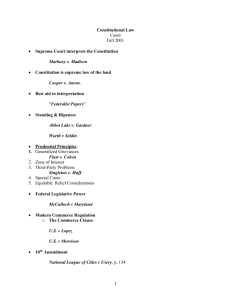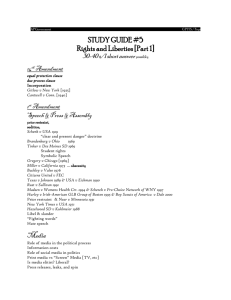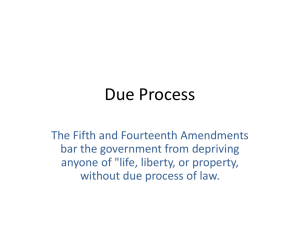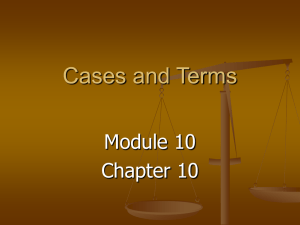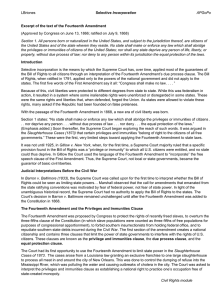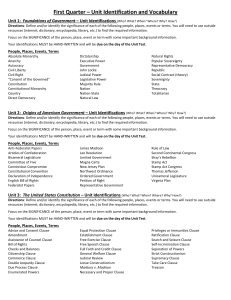Due Process
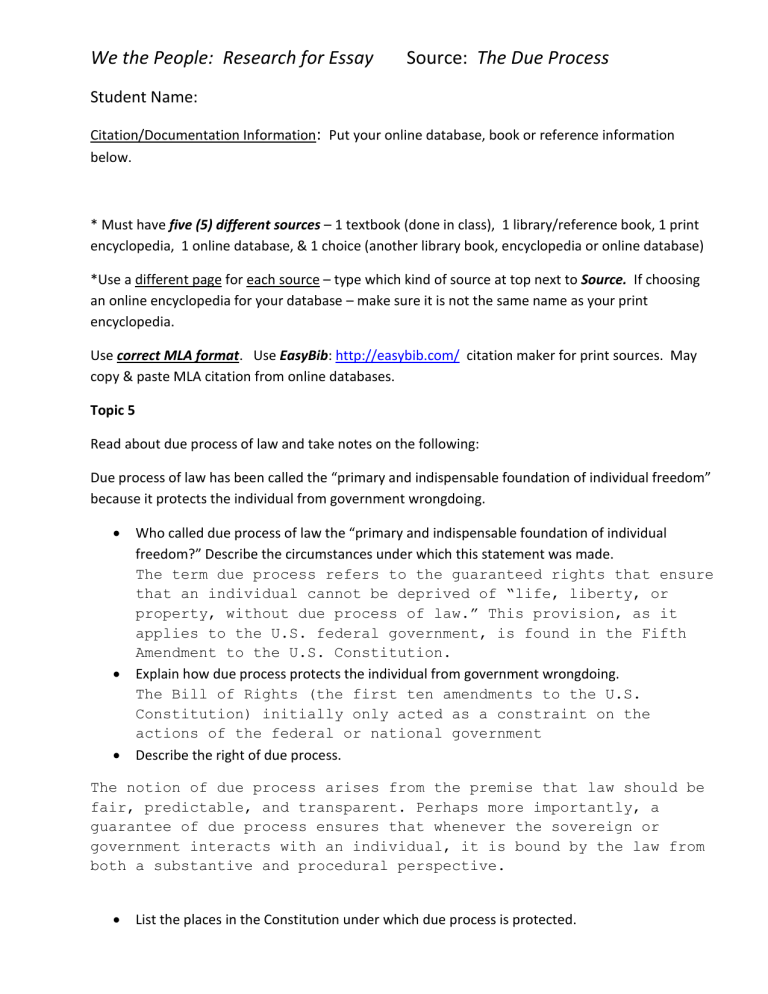
We the People: Research for Essay Source: The Due Process
Student Name:
Citation/Documentation Information
:
Put your online database, book or reference information below.
* Must have five (5) different sources – 1 textbook (done in class), 1 library/reference book, 1 print encyclopedia, 1 online database, & 1 choice (another library book, encyclopedia or online database)
*Use a different page for each source – type which kind of source at top next to Source. If choosing an online encyclopedia for your database – make sure it is not the same name as your print encyclopedia.
Use correct MLA format. Use EasyBib: http://easybib.com/ citation maker for print sources. May copy & paste MLA citation from online databases.
Topic 5
Read about due process of law and take notes on the following:
Due process of law has been called the “primary and indispensable foundation of individual freedom” because it protects the individual from government wrongdoing.
Who called due process of law the “primary and indispensable foundation of individual freedom?” Describe the circumstances under which this statement was made.
The term due process refers to the guaranteed rights that ensure that an individual cannot be deprived of “life, liberty, or property, without due process of law.” This provision, as it applies to the U.S. federal government, is found in the Fifth
Amendment to the U.S. Constitution.
Explain how due process protects the individual from government wrongdoing.
The Bill of Rights (the first ten amendments to the U.S.
Constitution) initially only acted as a constraint on the actions of the federal or national government
Describe the right of due process.
The notion of due process arises from the premise that law should be fair, predictable, and transparent. Perhaps more importantly, a guarantee of due process ensures that whenever the sovereign or government interacts with an individual, it is bound by the law from both a substantive and procedural perspective.
List the places in the Constitution under which due process is protected.
The Bill of Rights And The Court
Describe how the meaning of due process is applied.
The Court did not apply all the governmental restrictions of the
Bill of Rights at once, however. Rather, over time, the Court incorporated more discreet rights using a progressively broader configuration of the due process clause. For instance, in Mapp v. Ohio (1961), the Court ruled that the Fourth Amendment prohibited states from introducing illegally obtained evidence during criminal prosecutions
Describe the equal protection clause of the Fourteenth Amendment.
Once the Fourteenth Amendment was enacted after the Civil War , the U.S. Supreme Court utilized the due process clause to incrementally apply those constraints to the state governments. Through the process known as
“ incorporation,
”
the due process clause served as the conduit to apply the Bill of Rights to the relationship between individuals and the state governments.
List and explain the ways in which the equal protection clause prevents state governments from practicing unfair discrimination. the Court incorporated more discreet rights using a progressively broader configuration of the due process clause.
What does the research say about young people (under 18) having the same due process rights as adults? The Rights Are the same as if you were and adult or under 18

